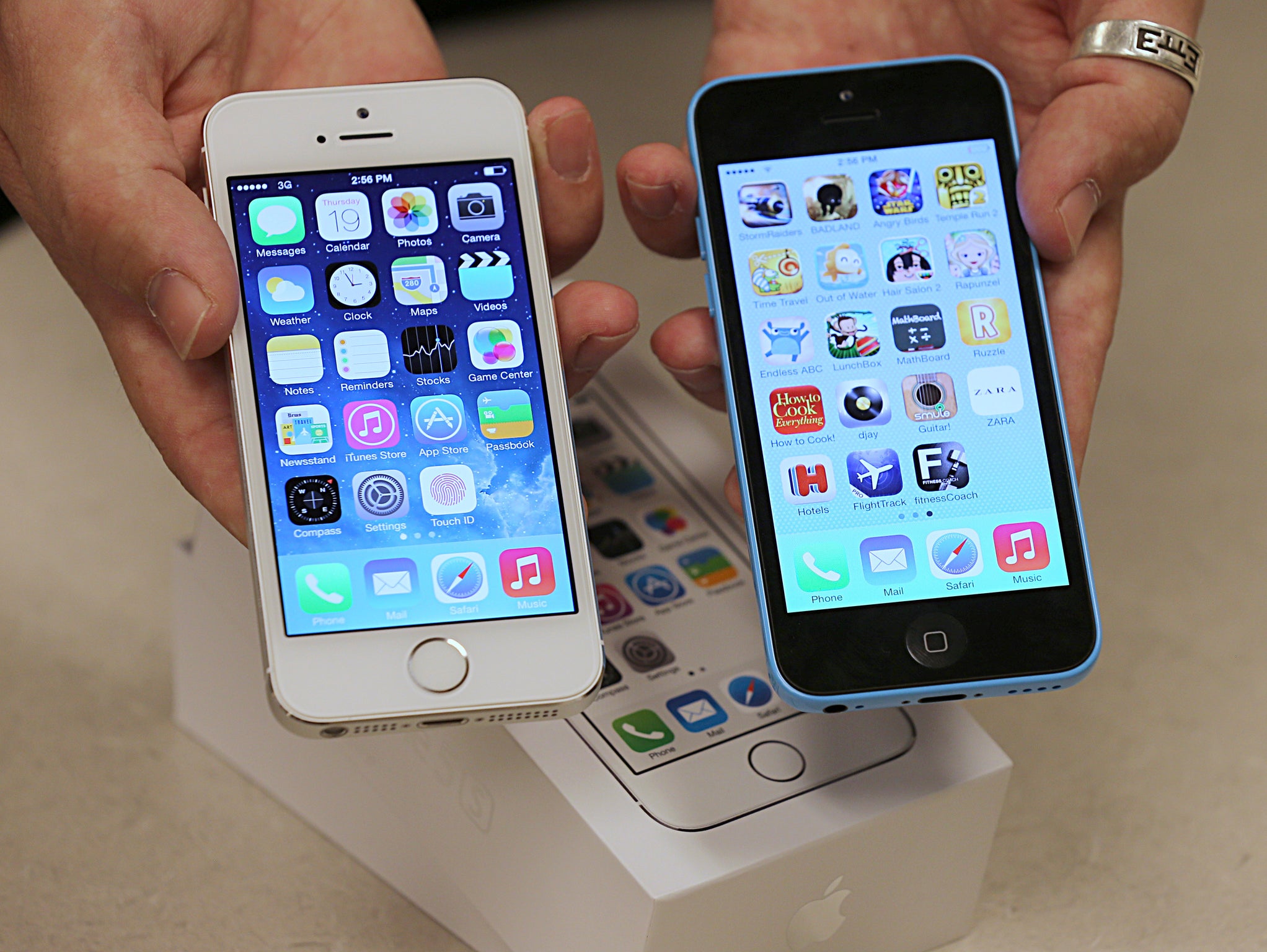The Independent's journalism is supported by our readers. When you purchase through links on our site, we may earn commission.
'iPhone Slow': Do Apple's smartphones get slower when a new one is launched?
Study of Google data shows a correlation between searches for 'iPhone Slow' and new iPhone launches - but no such pattern for new Android launches

‘Planned obsolescence’ or purposefully designing something to break after a set period of time is a dirty phrase in the tech industry, but there’s one group of gadget-obsessives who absolutely love it: Apple conspiracy theorists.
‘How is it,’ asks the suspicious consumer, ‘that whenever there’s a new iPhone coming out, my old one suddenly seems to get slower? Is it just me or does this look a little too convenient for Apple to be coincidental?’
Well, one thing for sure, is that it’s not just the paranoid who think this. A new study by Harvard economics student Laura Trucco and published in the New York Times has attempted to answer this question by looking at the number of people searching ‘iPhone slow’ (a sure-fire indicator that their smartphone’s processing power is on their mind) and how it changes over time.
Trucco found that sure enough, whenever a new iPhone is released searches for the phrase rocket upwards while similar searches tuned to Android devices (eg ‘Samsung Galaxy slow’) do not correlate at all with the launch of new devices, and simply trend upwards over the years as manufacturers sell more devices.
Sendhil Mullainathan, a professor of economics at Harvard and Trucco’s teacher, suggests that this data could have been influenced by expectations (if Apple are telling you how whizzy fast their new iPhone is your current one is bound to feel slower) but that there is also another possible cause.
“In the benign explanation,” writes Dr Mullainathan, “a slowdown of old phones is not a specific goal, but merely a side effect of optimizing the operating system for newer hardware.”
By this he means that when Apple releases a new iPhone they also tend to launch an update to their mobile operating system – one that is designed to take advantage of all the new hardware, but that doesn’t play quite so smoothly with older devices.
This suggestion is then that when Apple push out an update to iOS they inadvertently hobble anything that isn’t their latest device, with the spike in searches attributed to the fact that Apple is very good at encouraging people to update their software (something that is incredibly beneficial to the company in selling a consistent user experience to customers and developers alike).
The same software-slowdown might happen on Android devices (the study doesn’t cover this) but because big companies like Samsung only control the hardware and not the software, they’re less effective at getting customers to upgrade simultaneously – explaining why there is no parallel spike for ‘Samsung Galaxy slow’.
It’s a hell of a theory, but it does it prove that the Apple conspiracy theorists are right? As Dr Mullainathan says: “This data reveals only correlations, not conclusions.” We’ll leave you to drawn those on your own.
Subscribe to Independent Premium to bookmark this article
Want to bookmark your favourite articles and stories to read or reference later? Start your Independent Premium subscription today.

Join our commenting forum
Join thought-provoking conversations, follow other Independent readers and see their replies